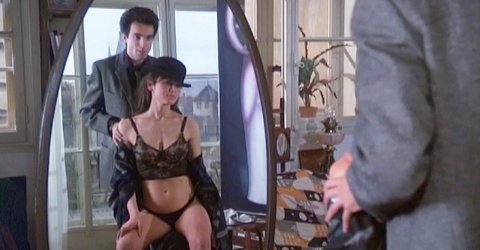The Honoraries: Jean-Claude Carrière, Part 2
 Wednesday, November 5, 2014 at 4:00PM
Wednesday, November 5, 2014 at 4:00PM Our 2014 Honorary Oscar tribute series continues with a two-part look at the long fascinating career of Jean-Claude Carrière. Here's Tim with Part Two.

Yesterday, Amir did a wonderful job of introducing us to the supremely gifted and abnormally prolific Jean-Claude Carrière, focusing on his iconic collaboration with Luis Buñuel. As important as that work was for both men, it tells only a fraction of the tale. With nearly a hundred screenplays to his credit in a career that’s still holding steady, 54 years on, it’s simply not possible to reduce the full scope of Carrière’s contribution to cinema to his work just one collaborator.
And so we now turn to Carrière's writing in the years following Buñuel’s death. Given the transgressive, ultra-modern nature of their films together, it’s perhaps a bit surprising that Carrière’s output from the ‘80s to the present would be dominated by prestigious literary adaptations and costume dramas - what could possibly be less transgressive than that? But just as Belle du jour is nothing like the usual late-‘60s erotic drama, so are Carrière’s late-career period pieces only superficially akin to awards-bating fluff. 1979’s The Tin Drum, which he adapted alongside director Volker Schlöndorff and Franz Seitz, is one of the nerviest films about the psychology of Nazi-era Germany ever filmed. In the scenario he provided for Andrzej Wajda’s 1983 French Revolution film Danton, he built a foundation for an angry, vivid drama about the corruption of politics. These are confrontational films, even upsetting.
As the years progressed, Carrière perhaps mellowed, enough to pick up one final Oscar nomination for 1988’s The Unbearable Lightness of Being, which he shared with that film’s director, Philip Kaufman. Although even here, “mellowing” is a relative term.
(The Unbearable Lightiness of Being, Birth, and Valmont after the jump)



